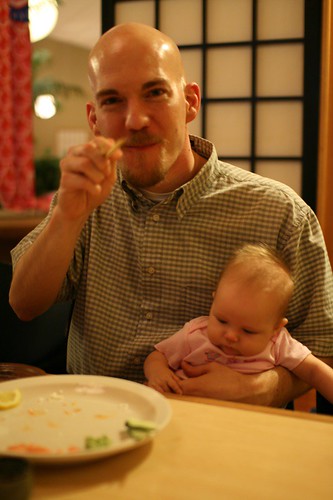In graduate school, many of us physicists would joke about how the business students couldn’t do math. Those working on their MBA took business-specific versions of math classes, like business statistics, and we suspected that those classes just weren’t rigorous enough. It was an unfair generalization, but it was not without reason.
Consider this letter to the editor that ran in the school newspaper. Jason Pratt was annoyed at how basketball tickets were to be distributed. Some background: at Duke, basketball tickets for graduate students are hard to come by. To buy season tickets, you had to camp out for a weekend. Random checks helped keep grad students from wandering too far away. Even that didn’t reduce the number of people wanting tickets enough, so if you did camp out for the entire weekend, your name was entered into a lottery. If your name was drawn, you got to buy a ticket.
At the time, given the number of people who camped out, you had roughly a one-in-three chance of getting tickets. The GPSC used to guarantee tickets to those who were in the last year of their graduate program. When they stopped doing that, Jason became outraged. He pointed out that it was unfair to those, like him, in a two-year MBA program. After all, if he camped out for tickets both years, he had a “1/3 + 1/3 = 2/3 chance of getting one season ticket.”
That’s not the best part, though. The best part is when he applied his logic to people in longer programs.
Now, let’s look at the four-year graduate student. This person has a 1/3 + 1/3 + 1/3 + 1/3 = 4/3 chance of getting at least one year’s ticket. Hmmm… statistically guaranteed.
Yes, indeed.
Shortly after that, the business school had a casino night party. At one point in the night, the organizers decided that the action wasn’t hot enough. They declared that, for a limited time, all bets would return double the normal amount.
The physics students promptly marched to the roulette table and, minus a reserve, put half of their money on black and the other half on red. Normally black or red pay out at a rate of 2 to 1, since there’s just under a 50% chance of hitting either. But in the brave new world of doubled payouts, my friends were all but guaranteed to double their money with every spin of the wheel.
Eventually the guy running the roulette table figured out what they were doing and muttered, “Stop that.” One of my friends cheerily replied, “Hey, you make the rules.”
I understand that statistics can be tricky. The results can even be counter-intuitive. But I’d feel better if the above business students had had a better grasp on the basics.





